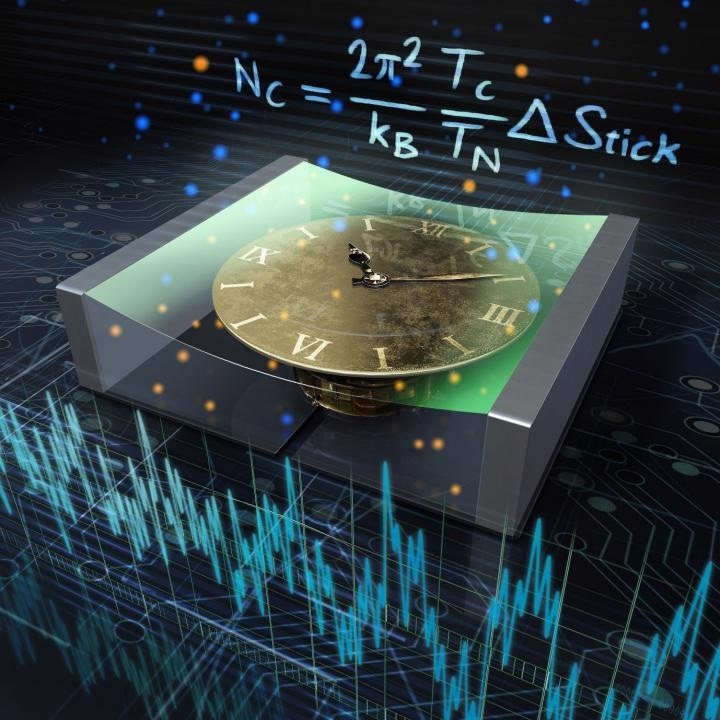May 10 2021
A novel experiment has demonstrated that if a clock consumes more energy, its timekeeping will be more precise.
 Clocks pervade every aspect of life, from the atomic clocks that underlie satellite navigation to the cellular clocks inside our bodies. Image Credit: Lancaster University.
Clocks pervade every aspect of life, from the atomic clocks that underlie satellite navigation to the cellular clocks inside our bodies. Image Credit: Lancaster University.
Clocks are ubiquitous in all aspects of life, ranging from the cellular clocks within the human bodies to the atomic clocks underlying satellite navigation. And all these clocks consume energy and discharge heat.
For instance, a kitchen clock performs this process by exhausting its battery. The most precise clocks usually need the most energy, hinting at an underlying link between precision and energy consumption. This is precisely what a global research team from Lancaster, Oxford, and Vienna set out to investigate.
To achieve this, the researchers constructed a specifically simple clock that comprises a vibrating ultra-thin membrane, measuring tens of nanometers thick and 1.5 mm long, integrated into an electronic circuit.
A single electrical tick was created by every oscillation of the membrane. The creative aspect of this design is that it is simply driven by heating the membrane, whereas the entire flow of energy via the clock can be electrically quantified.
The team observed that when they supplied more heat, the clock ran more precisely. As a matter of fact, the precision was in direct proportion to the heat produced. To increase the accuracy of the clock by two-fold, twice as much heat needs to be supplied.
The experimental research team included Dr Edward Laird from Lancaster University, Professor Marcus Huber from Atominstitut, TUWien, Dr Paul Erker and Dr Yelena Guryanova from the Institute for Quantum Optics and Quantum Information (IQOQI), and Dr Natalia Ares, Dr Anna Pearson, and Professor Andrew Briggs from Oxford.
The researchers’ study is the first-ever analysis where a measurement has been made of the heat loss, or entropy, produced by a minimal clock. The study has been published in the Physical Review X journal.
A crucial step in the development of upcoming technologies is figuring out the costs of the thermodynamics involved in timekeeping, including the testing and interpretation of the thermodynamics, as systems approach the quantum world.
It also demonstrates similarity between the working of a steam engine and a clock. In the case of a steam engine, there is a fundamental limitation on the amount of heat that needs to be supplied to a preferred amount of work. This limitation is the popular Second Law of Thermodynamics, which is crucial to contemporary engineering.
This experiment indicates that clocks, similar to engines, are limited by the Second Law, with their output being precise ticks rather than mechanical work.
The subject of thermodynamics, which incorporates the most fundamental principles of nature, tells us that there are two types of machines that we cannot operate without releasing heat. One is the mechanical engine, which releases heat to do work, and the other is the computer memory, which releases heat when it rewrites itself. This experiment—in conjunction with other work—suggests that clocks are also limited by thermodynamics.
Dr Edward Laird, Lancaster University
Dr Laird continued, “It also poses an intriguing question: are all possible clocks limited in this way, or is it just a property of the ones we have studied?”
Fascinatingly, several day-to-day clocks have an efficiency that is close to one predicted by scientists’ analysis. For instance, the investigators’ formula estimates that a wristwatch, whose precision for each tick is one part in 10 million, should consume a minimum of a microwatt of power.
A simple wristwatch generally consumes this amount just a few times. Discovered in the 19th century, the laws of thermodynamics are still finding novel applications even today.
Journal Reference:
Pearson, A. N., et al. (2021) Measuring the Thermodynamic Cost of Timekeeping. Physical Review X. doi.org/10.1103/PhysRevX.11.021029.